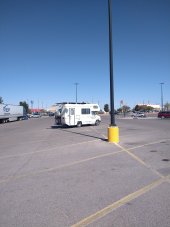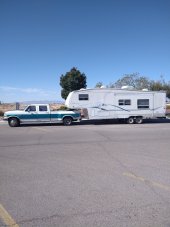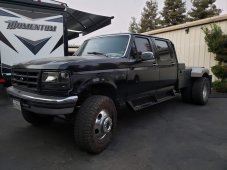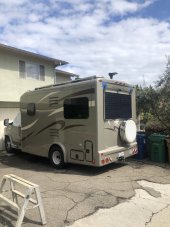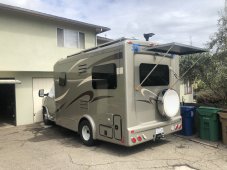Mudd
New Member
- Joined
- Oct 21, 2020
- Messages
- 106
I was passing through El Paso with my wife and our 3 pups and happened across an RV with solar covering the roof. We also have an RV but I haven't had the chance to put panels or a split unit on it yet. Seeing his Rig was an inspiration so I wanted to share with y'all. He said he had 20kwh of lipo4 storage and no propane. His Rig is the class c and mine is the older 5th wheel.



